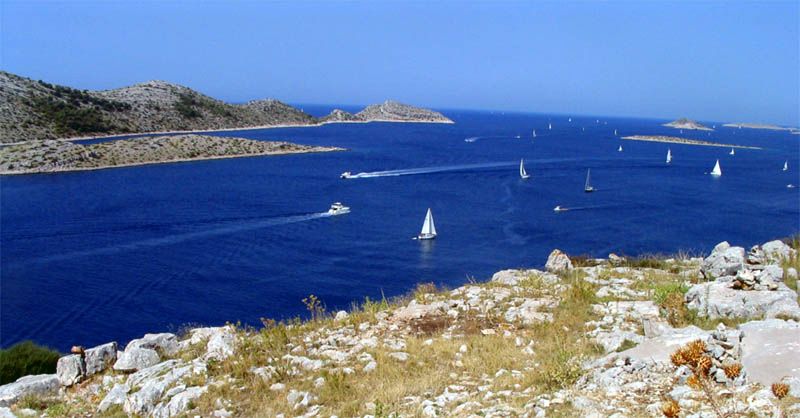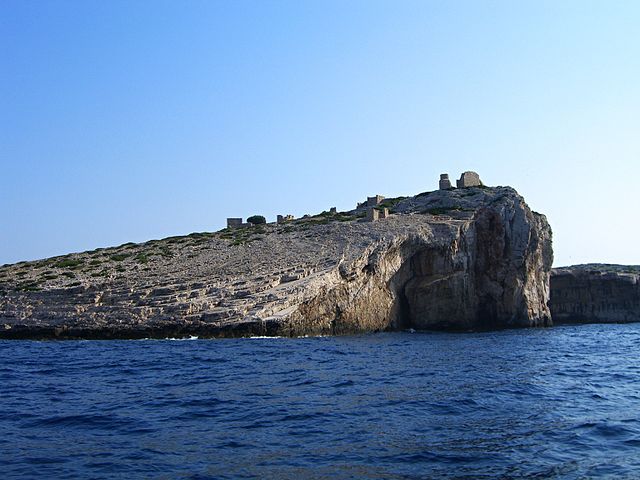April 19, 2018 - The population of the Kornati archipelago continues to disagree with the way things are managed in the National Park
A couple of weeks ago, we reported about the restaurateurs of the Kornati archipelago meeting with the director of Kornati National Park Josip Zanza. The meeting, which was supposed to result in ideas for collaboration just in time for the season, actually ended with the restaurateurs protesting against the management of the NP, going as far as to state they'll be calling for the Kornati to be stripped of their NP title.
Now that things have calmed down a bit, president of Kurnatari, the association for protection of ownership rights and original values of the Kornati), addressed the members at their latest session. Director Velimir Skračić released a public statement explaining the position of Kurnatari (residents of Kornati) within the Kornati National Park.
Since the NP first got its title, there have been systematical attempts to present the Kornati residents in public as a community that only wants to block and prevent the protection and progress of the NP - far from the truth. The local population has been the only constant in the archipelago from the middle of the 17th century to the present day, along with its precious nature they carefully cultivated without inflicting any damage to the ecosystem. Since the NP was founded, the residents have been supporting the claim that the Kornati are a public good of the Republic of Croatia; at the same time, however, the islands are private property, and according to the locals, those two don't have to cancel each other out. Where there's a will (and some useful knowledge), there's a way.
And yet, it seems both are somehow missing in this case. Kornati residents have refused to give up any of their rights, especially the right to a life of dignity, seeing it was them who had actively chosen the Kornati as the place where they would build their lives and make their living. They chose to stay. And instead of looking for solutions that would allow the locals to get involved in preservation of the Kornati identity (to the satisfaction of both parties), ministries and the public administration keep doing their best to push out the last ones standing, all the while being entirely unable to solve any of the existing problems.

Professor Skračić went on to say that the expansion of the old master plan, announced back in 2014, should finally start in a couple of days. The new (or revamped) plans should pay attention to the natural and anthropological components of the Kornati archipelago in equal measure, as both make up the foundations of its identity.
"We're asking for the Kornati population to be actively included in preservation of the archipelago's values through encouragement of traditional crafts", said Skračić, adding the locals should also be provided formal education in visitor safety. It's a standard EU practice when it comes to inhabitants of national parks, the professor stated.
Furthermore, the local population should be given back the right to traditional fishing in the archipelago's waters - it's a major component of the Kornati way of life and one of its most significant cultural traits.
There's much more that needs to be done: carrying out systemic research of the state of fish stocks in the area, obtaining permission for construction of new piers in line with traditional building techniques, installing at least one chemical toilet in each port on the Kornati islands as there are none at the moment, creating a plan for systemic eradication of the invasive Aleppo pine... it's always the locals who know what's going on and who are able of pointing to actual problems the area is dealing with.
Owing to their ignorance, a lack of insight into the area and stubborn disregard of the residents' legitimate claims, the Public Institute NP Kornati and the Ministry of Environmental Protection are leading the archipelago to become a third-rate tourist destination. These days, the NP is in a much worse state than it used to be when it first got the title. The people of Kornati can't allow for the state of affairs to be degraded any further, which is why they're asking to be consulted whenever important decisions are being made; after all, it's them who are affected the most. If their repeated appeals again end up falling on deaf ears, they are prepared to resort to other methods including civil disobedience, concluded Skračić.
Source: Šibenski



